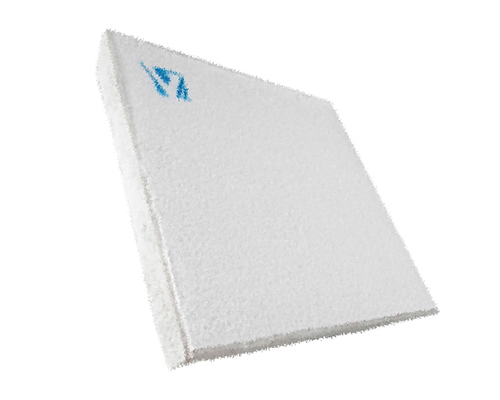Aluminium foam ceramic filter effectively removes large inclusions in liquid aluminum, adsorption micron level small inclusion particles, improve the surface quality, improve product performance, improve the microstructure, improve the rate of finished products.
Casting process performance of aluminum alloy
It is generally understood as a combination of those properties that are outstanding in the process of mold filling, crystallization and cooling. Fluidity, shrinkage, air tightness, casting stress, getter.
These properties of aluminum alloys depend on the composition of the alloy, but also on casting factors, the heating temperature of the alloy, the complexity of the mold, the gate riser system, the shape of the gate, etc.

1. The liquidity
Fluidity refers to the ability of alloy liquid to fill a mold. The fluidity of the alloy determines whether it can produce complex castings. Eutectic alloy has good fluidity in aluminum alloy.
There are many factors affecting the fluidity, mainly the composition, temperature and solid particles of pollutants such as metal oxides and metal compounds in the alloy liquid, but the basic external factors are pouring temperature and pouring pressure (commonly known as pouring height).
In practice, in addition to strengthening the smelting process (refining slag removal), it is also necessary to improve the formability (sand permeability, metal exhaust and temperature) without affecting the alloy. On the premise of ensuring the casting quality, the pouring temperature is improved to ensure the fluidity of the alloy.
2. Contraction
Shrinkage is one of the main characteristics of cast aluminum alloy.
Generally speaking, alloys are divided into three stages from liquid casting to solidification and cooling to room temperature, i.e. liquid shrinkage, solidification shrinkage and solid shrinkage.
The shrinkage of alloy has a decisive effect on the quality of casting, which affects the size of shrinkage cavity, the generation of stress, the formation of crack and the size change of casting.
Usually casting shrinkage is divided into bulk shrinkage and linear shrinkage. In actual production, linear shrinkage is generally used to measure the shrinkage of alloys.
Aluminium foam ceramic filter plays an important role in cast aluminum alloy. It helps reduce the metal shrinkage and makes the molten metal flow more stable.

